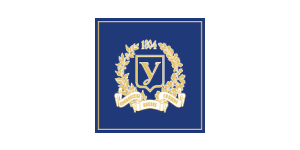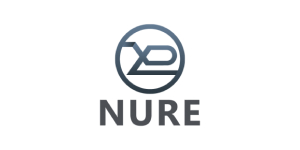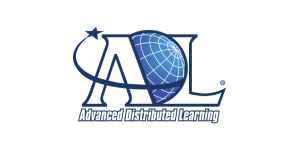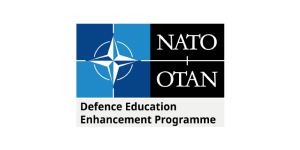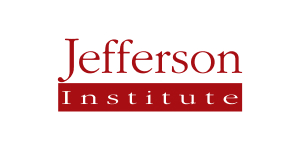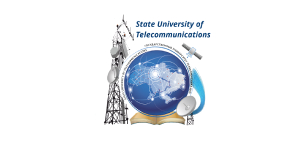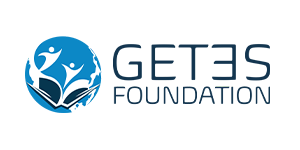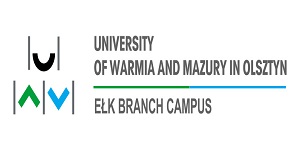- Need Technical Assistance? adlconf2023@getvfairs.io
 November 20, 2023 09:00
November 20, 2023 09:00
 November 20, 2023 09:00
November 20, 2023 09:00
Col Maksym Tyshchenko
National Defence University of Ukraine,Head of ADL Center, PhD, Senior Scientist.

 November 20, 2023 09:10
November 20, 2023 09:10
Col Gen Mykhailo Koval
National Defence University of Ukraine, Commandant, Doctor of Science

 November 20, 2023 09:15
November 20, 2023 09:15
Maj Gen Dag Rist Aamoth
Norwegian Defence University College, Commander

 November 20, 2023 09:20
November 20, 2023 09:20
Mr. Mariusz Solis
NATO DEEP, Coordinator

 November 20, 2023 09:25
November 20, 2023 09:25
Mr. Howard W (Tank) Thorp Jr.
Joint Knowledge Online, Joint Staff J-7, JKO Division Chief

 November 20, 2023 09:30
November 20, 2023 09:30
Dr. Sae Schatz
The Knowledge Forge, Founder and CEO, PhD

The landscape of education is transforming. We are moving away from traditional, one-and-done educational models towards dynamic, continuous ecosystems of lifelong learning. This shift is empowered by cutting-edge technologies, particularly Artificial Intelligence (AI). This talk explores: (a) Education is no longer confined to structured, finite experiences. We are witnessing the emergence of personalized, lifelong learning ecosystems, where individuals can engage in a continuous journey of growth and development. (b) AI is at the heart of this educational revolution. It is driving the personalization of learning experiences; it can provide intelligent insights (through learning analytics) and is transforming how content is designed, delivered, and managed. (c) Educators can seize the opportunity to integrate emerging technologies and evolve their curricula and meet the demands of a changing educational landscape by exploring the discipline of Learning Engineering.
 November 20, 2023 09:50
November 20, 2023 09:50
Dr. Bohdan Morklianyk
Deputy Head of National Agency for Higher Education Quality Assurance, Doctor of Science, Professor.

Dr. Yurii Balaniuk
Head of National Qualification Agency, PhD, Assotiate Professor

The purpose of this speach is to review the main principles of using professional standards and sectoral qualification frameworks in higher military education in Ukraine
 November 20, 2023 10:05
November 20, 2023 10:05
Mr. Ihor Khmylevskyi
Commander-in-Chief's Office, Expert

The Armed Forces of Ukraine pay a lot of attention to digitalization of accounting and management processes. Unique opportunities that have emerged for digital reform. State institutions are involved in the process. Description of the accents of the action plan. Challenges
 November 20, 2023 10:35
November 20, 2023 10:35
Ms. Samantha Paarlberg
NATO HQ, Head of Strategy and Portfolio Section

Mr. Kimon De Simone
HATO HQ

A presentation on how NATO is beginning to transform into a digital enterprise
 November 20, 2023 11:05
November 20, 2023 11:05
Lt Col Michael Nickolaus
Bundeswehr, ADL Director of the German Armed Forces

The german ADL structure and technical examples for the different ADL applications and technologies.
 November 20, 2023 11:25
November 20, 2023 11:25
Ms. Danuta Pietraszkiewicz
NATO DEEP eAcademy, Deputy Director

The presentation "NATO DEEP eAcademy Update" will focus on the latest developments and progress related to the eAcademy initiative within the NATO DEEP program. Here are some topics that may be covered during the presentation: 1. development of the e-learning platform: Discuss progress in the development of the NATO DEEP eAcademy e-learning platform, including technological aspects, functionality and user adaptability. 2. Current course content: Presentation of the latest course content, scope, structure, and analysis of user reactions to new educational materials. 3. successes and achievements: Presentation of the results achieved with the eAcademy program, including successes in the learning process and efficiency of knowledge acquisition. 4. Planned Expansions and Development: Present plans for eAcademy expansion, new courses and technological improvements to meet the changing needs and expectations of participants. 5. Integration of tools and new technologies: Discuss the planned integration of new technologies and tools to support learning processes, including the use of artificial intelligence or cloud technology. The "NATO DEEP eAcademy Update" presentation will focus on these key areas, with the goal of outlining progress and future directions for the initiative.
 November 20, 2023 11:40
November 20, 2023 11:40
Dr. Aaron Presnall
Jefferson Institute, President, PhD

The ongoing Russian war on Ukraine demonstrates that victory in modern warfare requires us to train and educate while we fight, helping our forces to adapt to meet changing needs in complex environments. This session will discuss how Allies & Partners can take a more dynamic approach to training and education to generate effects both inside and outside of the classroom. The session will explore how this approach can guide education and training to enhance security cooperation in a time of strategic competition.
 November 20, 2023 12:00
November 20, 2023 12:00
Mr. Howard W (Tank) Thorp Jr.
Joint Knowledge Online, Joint Staff J-7, JKO Division Chief

 November 20, 2023 12:20
November 20, 2023 12:20
 November 20, 2023 12:45
November 20, 2023 12:45
Col Maksym Tyshchenko
National Defence University of Ukraine,Head of ADL Center, PhD, Senior Scientist.

The presentation will be devoted to the general directions and peculiarities of using AI in education and science
 November 20, 2023 13:15
November 20, 2023 13:15
Dr. Anastasia Logotheti
The American College of Greece-Deree, Director of Teaching and Learning Center, PhD, Professor

Dr. Maria Avgerinou
The American College of Greece-Deree, Assistant Professor of School of Graduate and Professional Education, PhD

In the fast-evolving landscape of education, artificial intelligence (AI) is reshaping the way we design learning experiences and assess learner performance. Join us as we explore the intersection of AI and education, focusing on two key aspects: AI in learning design and AI-driven assessments. In the first part of the presentation, we will consider how AI is revolutionizing the way educators create effective learning experiences. Toward that end, real-world use cases and concrete examples will be provided to illustrate the educational potential of AI. In the second part, we will showcase a variety of assessments that not only evaluate students' knowledge but also help them develop critical AI literacy skills.
 November 20, 2023 14:00
November 20, 2023 14:00
Ms. Biljana Presnall
Jefferson Institute, Vice President

Moodle stands out as a premier choice in the realm of open-source Learning Management Systems (LMS), offering its services for free to a global user base exceeding 175 million. Recently, it has integrated learning analytics as a fundamental feature of its platform. This workshop will guide participants through the straightforward process of leveraging Moodle's learning analytics and its machine-learning capabilities. Utilizing the robust Analytics API, Moodle administrators can craft unique models by merging various indicators and objectives. These custom models employ in-built machine-learning algorithms that follow established criteria to anticipate outcomes, such as predicting a student's likelihood of discontinuing their courses. Upon such predictions, automated responses can be initiated, ranging from alerting the student to providing data for the development of adaptive learning frameworks. The session will delve into the specifics of activating learning analytics, developing and refining personalized models, extracting detailed insights through reports, and implementing mass operational tasks.
 November 20, 2023 14:15
November 20, 2023 14:15
 November 20, 2023 14:30
November 20, 2023 14:30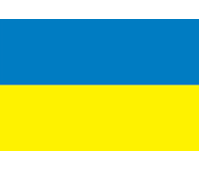
Viktor Kauk
Kharkiv National University of Radioelectronics, Supervisor of ADL Center, PhD, Associate Professor.

Artificial intelligence (AI) is developing rapidly, and its applications in education and scientific research are becoming increasingly complex. In this talk, I will discuss how generative artificial intelligence is being used to make education and research faster and more efficient. The talk will look at generative AI, which can create new data such as images, text and code. This is in contrast to discriminative AI, which can only classify or predict the data available. It will be demonstrated how generative AI is used in education. For example, generative AI can be used to create personalized learning experiences, automate research tasks, and analyze large volumes of data. In research, generative AI can be used to generate new hypotheses, design experiments, and analyze data. Generative AI services will be demonstrated, namely how these services can be used to create educational materials, automate research tasks and analyze data.
 November 20, 2023 15:30
November 20, 2023 15:30
Mr. Gigi Roman
NATO School Oberammergau, eLearning Coordinator

Basic prompt engineering considerations for interactions with open AI
Artificial intelligence (AI) is transforming the world of education and learning, offering new opportunities and challenges for educators and instructors. In this presentation, we will introduce the basics of AI and its applications in various domains, such as natural language processing, computer vision, and generative AI.
Focus of this presentation is on generative AI, a branch of AI that can create novel and diverse content, such as text, images, audio, and video. We will explore some of the popular and innovative generative AI platforms and tools, such as chatbots, OpenAI, Bard, and Bing, and how they can be used for education and learning purposes. We will also show some examples and demos of prompt engineering, a technique that involves crafting specific and effective prompts to elicit desired outputs from generative AI models.
We will discuss how AI can be integrated into learning management systems (LMS), such as JEAN boot on DEEP LMS, and how AI plugins can enhance the functionality and usability of LMS. We will also share some best practices and tips for using AI in education and learning, as well as some ethical and social considerations and implications.
By the end of this presentation, the audience will have a better understanding of AI and its potential and challenges for education and learning, and will be able to apply some of the generative AI tools and techniques in their own teaching and learning contexts.
 November 20, 2023 16:00
November 20, 2023 16:00
Lt Mélanie Nacimento
NATO MILMED COE

 November 20, 2023 16:15
November 20, 2023 16:15
 November 20, 2023 16:20
November 20, 2023 16:20
Col Maksym Tyshchenko
National Defence University of Ukraine, Head of ADL Center, PhD, Senior Scientist

 November 20, 2023 12:45
November 20, 2023 12:45
 November 20, 2023 12:45
November 20, 2023 12:45
Dr. Stian Kjeksrud
Norwegian Defence University College, Associate Professor, PhD

Immersive EdTech-programs with Extended Reality for faster and better learning in higher military education. Topics: 1) human security and military force 2) training military skills through Virtual Reality
 November 20, 2023 13:05
November 20, 2023 13:05
Dr hub. Michał Kłosiński
The University of Silesia in Katowice, Associate Professor of Faculty of Humanities, Game Studies Research Centre

Mr. Karol Jędrasiak
The University of Silesia in Katowice

With dr karol Jędrasiak we would like to present the preliminary report on building framework concerning the idea of certification, comparison and evaluation of VR/AR/XR equipment in regards to vocational skill training and skill retention. We are working with many researchers and practitioners on building a series of tools for education, development and certification of education technologies. Our report touches on the subject of key factors in comparing the educational effects of new technologies in three key areas: certification of equipment; assessment of skill training, retention and transfer scenarios; and evaluation of educational practices.
 November 20, 2023 13:25
November 20, 2023 13:25
Dr. Cade McCall
University of York, Associate Professor(Senior Lecturer), PhD

Mr. Aaron Laycock
University of York

Research in psychology and neuroscience demonstrates that threat influences complex forms of cognition, changing the ways that we plan, make decisions and interact with others. In this presentation we will discuss our approach to bridging the gap between this basic research and military training. We will present our field research on the lived experience of military personnel with extensive combat experience. We will also present our laboratory-based research using virtual reality (VR), psychophysiology, and computational modelling to study cognition under threat. Based on this research we will propose a new approach to VR-based training tools that manipulates threat in novel ways while evaluating its effects on complex cognition.
 November 20, 2023 13:45
November 20, 2023 13:45
Capt Brian Lundberg Kristensen
Danish Army NCO School, Head of Training

Being an NCO is like mastering a craft. The essence of the profession is practically related. They use their hands, body and mind in the field, and at first glance, the making of NCOs and digital learning does not appear to be the perfect match. However, our experiences showed us different, and by using training videos combined with Moodle as our platform, we witness a significant increase on the professional output amongst our trainees. By using Moodle and videos prior to any tactical activity, we both support different learning preferences and at the same time, we are able to visualize, what will meet the trainees, when they show up in the field. Due to lack of real scale training units at the NCO school, we instead looked for a digital solution. We will show examples of how, we have created animated videos in order to visualize platoon maneuvers.
 November 20, 2023 14:15
November 20, 2023 14:15
 November 20, 2023 14:30
November 20, 2023 14:30
Mr. Bill Railer
Canadian ADL Center, Director

Mr. Matt Kasper
Canadian ADL Center, TLA / Digitalization Lead

Dr. Jeela Jones
Project Management Innovation Office

Mr. Nick Deslandes
Canadian ADL Center, ADL Innovation Lead

Report will cover TLA evolution within the CAF and also highlight some of our newest innovation projects
 November 20, 2023 15:15
November 20, 2023 15:15
Mr. Marcin Jozwiak
NATO DEEP eAcademy, Deputy Director for Academic Affairs

The report goes deep into finding out what are the competencies of the future Professional Military Education (PME) educator. It gives examples of what can be done within the sphere of teacher education to reflect the rapid technological changes.
 November 20, 2023 15:30
November 20, 2023 15:30
Mr. Gustav Nyquist
Norwegian Defence University College, Digital Content Producer

Ms. Irene Beyer
ICT educator

How we use videos in Norwegian Defence University to support learning. Both towards students and skills development of staff members. Showcasing a variety of videos produced at NDUC
 November 20, 2023 16:00
November 20, 2023 16:00
Mr. Sandis Kondrats
Exonicus, Inc

In a groundbreaking development, a group of 80 Ukrainian combat medics has embraced cutting-edge technology to enhance their combat medical decision-making skills. This innovative approach involves the use of a virtual reality trauma simulator, marking a significant step forward in the field of military medical training. These dedicated medics, comprising individuals of various ages and gender, have been using the VR trauma simulator as a training tool. This simulator replicates realistic combat scenarios, providing an immersive environment where medics can practice their skills and decision-making under high-pressure situations. The medics are exposed to a range of traumatic injuries and battlefield conditions, allowing them to develop and refine their responses to a wide array of medical emergencies. The feedback from these medics has been overwhelmingly positive. Both young and seasoned medics have expressed their appreciation for this groundbreaking training methodology. They have pointed out that the VR trauma simulator offers an invaluable opportunity to hone their skills without exposing themselves to real-life dangers. The realism of the simulator, combined with its immersive nature, has allowed medics to experience the chaos and urgency of a battlefield without leaving the safety of a training facility. Furthermore, the VR trauma simulator provides medics with instant feedback and performance metrics, enabling them to identify areas that require improvement and track their progress over time. This aspect of the training has been particularly beneficial in helping medics enhance their decision-making capabilities and response times during critical situations. As a result of the overwhelmingly positive feedback and the tangible benefits observed in the medics' performance, there is a growing demand to openly discuss and promote the use of virtual reality in combat medical training. Many medics now see this technology as a game-changer in preparing them for the challenges they may face on the battlefield. The successful integration of virtual reality into combat medical training in Ukraine sets a precedent for the adoption of advanced training methods in military healthcare worldwide. As technology continues to advance, it is likely that VR and other simulation tools will become integral components of military medical training, ensuring that combat medics are better prepared than ever to save lives in the most challenging of circumstances.

